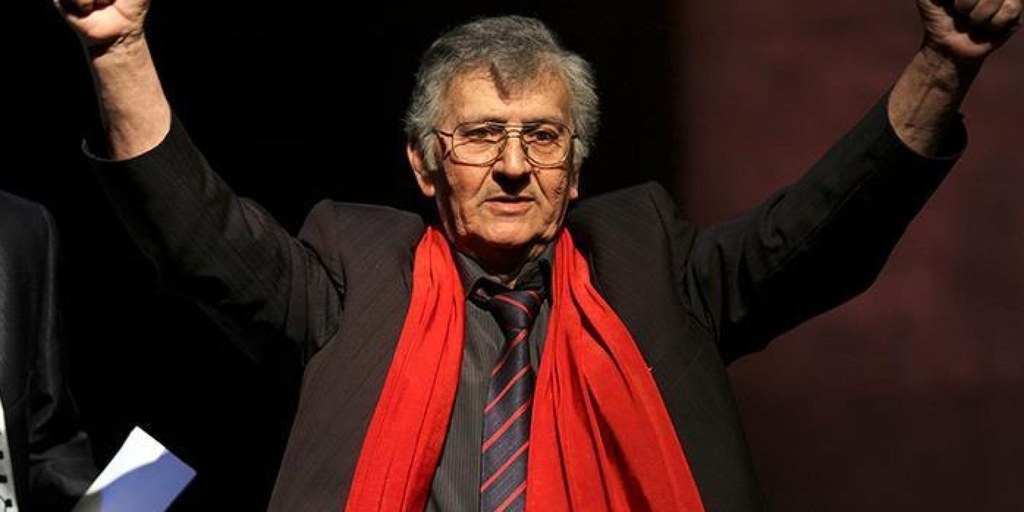Write Down!

View this video on YouTube
One of Darwish's most famous poems, "Passport," was adapted by the Lebanese artist Marcel Khalife. English lyrics are in the video:
"Probably one of the best lyrical retakes of the the 1948 Palestinian refugee exodus yet it's still applicable to anyone who feels detached from a literal or figurative home. Marcel tells of how deep his connection is to the land and yet how he is denied the sense of belonging because of his passport. He ends the song with a declaration that his nationality is now dependent on the kindness of others and that his passport is meaningless.
This song illustrates how for many Palestinians their passports no longer reflect who they are. Despite how rooted in the land the song describes the refugee he is still removed from it by the passport. He appeals to his superiors "gentlemen" but ends the song with no resolution, just like refugee situation remains today."
Read a landmark 1996 interview with Darwish: “Exile Is So Strong Within Me, I May Bring It to the Land.”
Journal for Palestine Studies editor Rashid Khalidi reflects on the life of Darwish: Remembering Mahmud Darwish.
My Happiness Bears No Relation To Happiness

View this video on YouTube
Taha Muhammad Ali reads his poem "Revenge"
A Picture of the House at Beit Jala
Ghassan Zaqtan
Born in the hilly Palestinian Christian village of Beit Jala near Bethlehem, Zaqtan's early life was interrupted by the 1967 Six-Day War. At the dawn of his teen years, Beit Jala came under Israeli occupation and the cultivated and pristine lands of his hometown were slowly expropriated by Israeli settlements and the Separation Barrier. Upon completion of the Barrier, Beit Jala "will have lost about 46 percent of its land in the course of the last four decades of the prolonged Israeli occupation." Later in life, Zaqtan was active with the Palestine Liberation Organization (PLO) and edited their literary publication "Bayader." Like many Palestinians, he lived abroad and returned in the hopeful Oslo days.
Although Zaqtan has been involved, as a writer, in the Palestinian resistance struggle against Israeli occupation and self-determination, he has spoken often about his avoidance of politicized poetry and eschewing any vanguard role.
"I am not the kind of person who will walk in front of the demonstration. I feel that's not my place. I walk behind the demonstration in order to collect the small things that may fall, whether it's the handkerchief or a child's backpack or a purse. That's my attitude," he once said in an interview with broadcaster PBS.
For Zaqtan, this represents a new trend in Palestinian poetry. Poets had long been called up to convey nationalist imagery and slogans, to be the voice of the resistance, and many Palestinian poets served that role during the days of armed resistance in the 1970s and '80s.
In recent years, Palestinian poets have moved away from grand narratives and have refocused their eye on the more intimate, mundane, and small realities of life. And Zaqtan has been a pioneer in that effort.

"Travel Tickets"

To learn more about Palestinian history and culture, and current affairs, visit the Institute for Palestine Studies.



